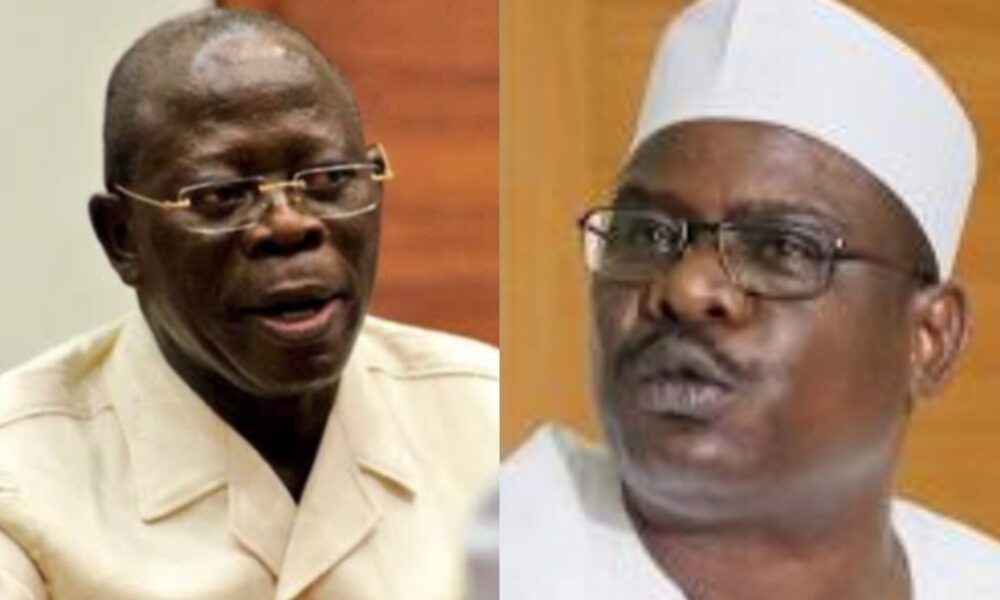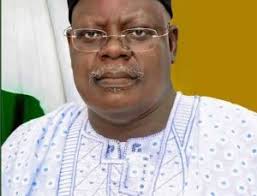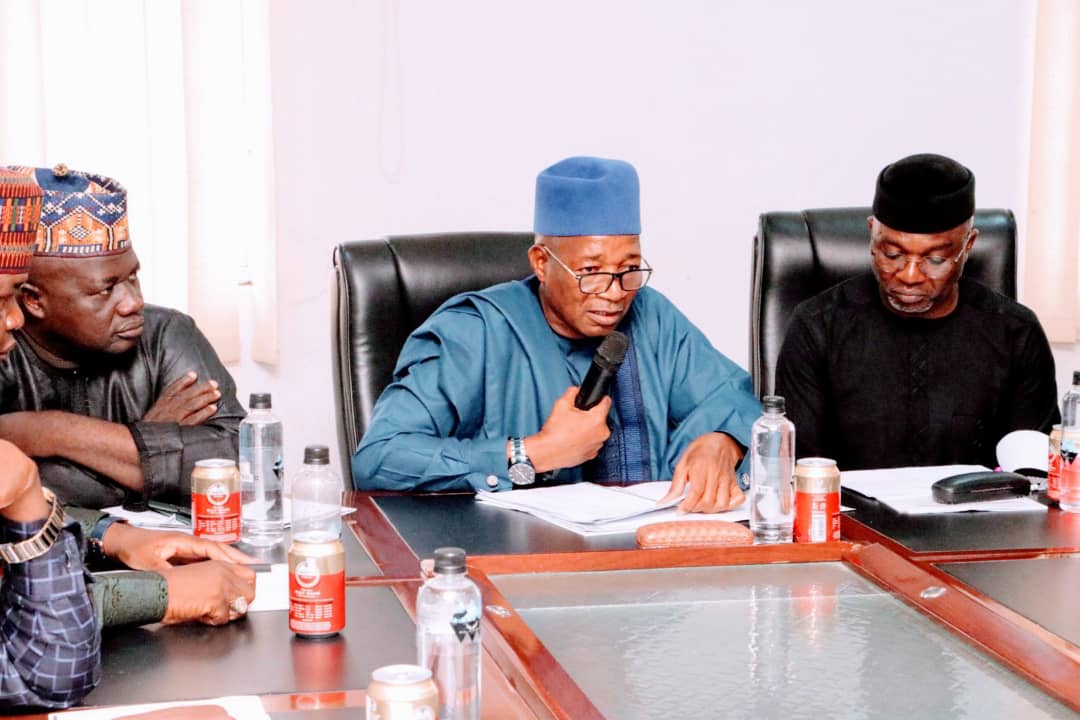The senate on Thursday turned down a motion seeking investigation on the misuse of security funds with a view to putting a halt to the diversion of such funds to building of universities and purchase of yatch.
The motion, which came during deliberation on the bomb blast in Borno State last Saturday, was sponsored by former Edo State governor Adams Oshiomhole and seconded by Neda Imasuen (Edo South, LP).
Senate Chief whip, Mohammed Ali Ndume, in an earlier motion drew attention to the Borno tragedy and advised that security agencies in the country shouid deploy the use of modern technology in the fight against insurgency and to make concerted efforts in securing the hot spots inhabited by the insurgents, namely, the Lake Chad Region, Sambisa Forest; and Mandara Mountains, respectively.”

But while the debate on Ndume’s motion was ongoing, Senator Oshiomhole, moved another motion seeking an additional prayer to Ndume’s prayers.
“My additional prayer is that
the Senate Committee on Army and Air Force should ensure that we do not only provide more money to the armed forces, that we guide jealously what they use that money to procure. Under the supervision and oversight of this National Assembly, previous service chiefs, spent this money to build universities in their various communities.”
“Those are the kind of resources that should be used to procure modern technology. And to think that money will be diverted to non-essentials. And as we speak, those institutions are not teaching anything about security. They are just another glorified university. I think that this house has the power to appropriate. We should focus strictly on the items that the army and the air force and other security agencies are going to spend to do their work.” Oshiomhole stressed.
The former APC national chairman said the Senate must ensure that security and defence chiefs redirect their procurement policies to focus on this technology adding that “Otherwise, we can decline to approve future appropriations if the details are not such that those managing the system will use the money strictly in a manner that will do justice to our collective feeling about redirecting and moving more and more towards technology.
Signs that Oshiomhole’s motion would be rejected emerged when Senate President Godswill Akpabio, declared that his problem with the motion is the allegation that previous service chiefs diverted money to build universities. “Did they build personal universities or public universities? He queried.
Oshiomhole in a swift reaction responded saying “they built public universities. And I believe that if half of those money was used to strengthen NDA, in terms of competence of the men and the rest used to procure modern technology”
Oshiomhole further expressed displeasure on the diversion of military funds to purchase yatch.
“Just last year when we were doing the supplementary budget, we saw that the Navy brought up the issue of yatch.
“Were we prepared to buy a yacht? That is why the oversight responsibility of this Senate is extremely important to prevail on the armed forces to prioritize in a manner that coincides with what we think the Nigerian Army should be doing.” He noted.
Seconding the motion, Imasuen explained that the issue is about ensuring that “the money appropriated to the military should be directed to the core values, to the core mandates, which is the protection and procurement of materials and instruments that will aid them in securing our country rather than to universities or procuring yachts.
When the question was put on whether the senate should mandate its committees on defense, to oversight all appropriations to the armed forces to avoid diversion of monies from procurements of necessary tools and fighting insurgents into unnecessary construction of universities in various domains of the armed forces chiefs as well as procurement of yatchs, it was overwhelmingly defeated.




